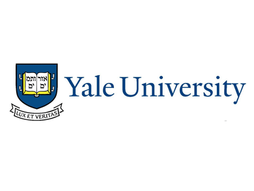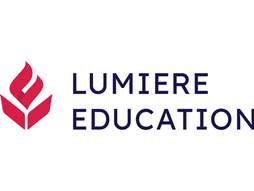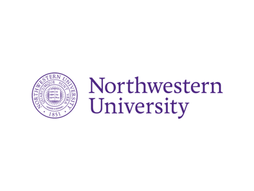Princeton Summer Journalism Program: Our Review
Have you ever wanted to report on an important issue or event, but found yourself unable to reach a major audience? Journalism can be a difficult field for high schoolers to pursue and get exposure in, especially during the summer. When the school newspaper goes on hiatus and you can’t take classes on journalism - what can you do?
Luckily, the Princeton Summer Journalism Program is a unique, intensive opportunity for you to explore current world affairs with experienced faculty and peers. It’s easy to become excited about the program and put in your application, hoping to get in – after all, it’s Princeton, right?
However, should you join the program?
In this article, we’ll be exploring the details of the Princeton Summer Journalism Program and help you understand whether the program is the right fit for you.
What is the Princeton Summer Journalism Program?
The Princeton Summer Journalism Program (PSJP) is a multi-week summer program in which around 40 high school juniors learn more about current events through workshops and lectures led by Princeton professors, professional journalists, and alumni. While some panels are virtual, the program ultimately leads to a 10-day residential experience on Princeton’s campus and students will publish their report into the Princeton Summer Journal.
In addition to the summer journalism experience, the program offers college preparation while the participants navigate their final year of high school. In the summer, the students will be matched with their personal college advisor, who will guide them through the entire process of selecting colleges, writing essays, submitting applications, and choosing which college to attend. PSJP not only is a phenomenal summer opportunity, but also it extends into the college application process, which could lead to fundamental changes in one’s life down the road.
Is PSJP prestigious?
Yes. The program’s association with Princeton University provides it with the elevated status and name value of the college itself. Moreover, not only do you participate in a program that has many competitive benefits, but you also may have a greater chance of getting selected to attend Princeton when you apply next year.
However, that means that the program is highly competitive. While there are no statistics on how many students apply every year, only approximately 40 students in the nation are chosen to attend.
Where can I see past publications?
On their website, PSJP provides a list of past participant submissions for The Princeton Summer Journal. Past topics that were discussed range from a variety of social and economic issues, such as racial divide, activism, and police reform.
Who is eligible for PSJP?
PSJP explicitly states that they prioritize students who are of low-income backgrounds with limited opportunities for academic advancement, especially those who are first-generation college students in their family.
Applicants should meet the following criteria:
Be a junior in high school at the time of application.
Live in the United States and intend to attend college here. Students living and attending school abroad, including U.S. citizens, will not be considered under any circumstances.
Have a minimum unweighted grade point average equivalent to a 3.5 out of 4.0.
Have an interest in journalism.
Meet at least one of the socioeconomic conditions below:
The combined income of your parent(s)/guardian(s) plus child support payments, if any, does not exceed $60,000.
Your family income or circumstances qualify you to receive free or reduced-price lunch in your high school.
Your family income or circumstances qualify you to receive an SAT or ACT fee waiver.
Because PSJP will consider applications on a case-by-case basis, students are invited to explain any extenuating circumstances that may have impacted their academics or financial situation.
What are the application requirements?
The application process is divided into three segments, which will involve different steps that students will be required to complete.
Round 1: December - February
When the application for the upcoming PSJP program opens, students will be required to fill out an online application. They will need to submit details on academics and family finances, their guidance counselor’s contact information, an unofficial high school transcript, and recommendation letters from a high school teacher and counselor. In addition, students must complete three short answer questions, write one longer article,
Round 2: March - April
Those who have proceeded to the second round will be notified at this stage as semi-finalists. Semi-finalists will have to submit additional documents, like federal taxes, family income information, and samples from a high school newspaper or publication if available. Detailed information will be sent to the invited students.
Round 3: May
Although information on this stage is mostly limited to the finalists who have been selected for this round, this stage of the application process will require video interviews for those involved. The final decisions on admissions will be sent by late-May.
How much does PSJP cost?
One of the most attractive aspects of PSJP is the fact that the cost of attendance is completely free. Because of the program’s emphasis on providing opportunities for low-income talents, the organizers will arrange and pay for housing, meals, and transportation. For many, the chance to reside on Princeton’s campus and meet with faculty members is priceless, so being able to do so without needing to pay is a very tempting offer.
Pros
As you may have already seen, PSJP has many benefits, but to summarize them, here are some pros of getting selected into PSJP.
1. You will have a published paper in a renowned journal on an important topic.
Being able to spread awareness on critical issues is important for any journalist. As a high school student who is passionate about journalism, having a published article in The Princeton Summer Journal is an incredibly prestigious opportunity for you to make a poignant comment on current world issues. With such an honorable accomplishment on your resume, you’ll surely stand out among the competition after you complete the program.
2. You can make great connections within the industry.
At PSJP, you’ll be attending online workshops and lectures taught by renowned journalists from all over the country, and during the residential portion of the program, you’ll be able to tour major news facilities like The New York Times, Huffington Post, and Bloomberg while seeing journalists in action. Therefore, PSJP is a networking gold mine that can help you advance your career if you can get to know these professionals. Of course, you’ll be meeting other like-minded peers who are equally passionate about journalism, and being part of PSJP’s alumni can provide you with a greater system of connections for the future.
3. You can explore Princeton’s campus and offerings.
If you’ve wondered what it would be like to go to Princeton as a student, you can experience it for a limited time within PSJP. While you will get to be on campus for only 10 days, you’ll be able to attend classes, go to the dining hall, and live in the dorms while still being in high school. This is a major advantage for when you’re deciding whether you like Princeton and you would like to apply for the college because you have an idea of what the facilities and community is like.
4. You will have personalized, tailored college application advice.
While most summer programs end completely in the summer, PSJP continues to help their most recent alumni by providing them personalized counseling in the college application process. This is completely unique to PSJP and is not seen in any other summer program. Therefore, with an experienced professional to give you feedback and special tips and tricks, you’ll avoid major mistakes and have a higher chance of getting into your dream college. On their website, PSJP lists the number of “Notable Colleges Attended,” and these names range from Ivy League universities, Williams, Stanford, and more! Especially considering that this service is usually very expensive, this is a great competitive advantage for why you should apply for PSJP.
5. You can attend for free.
For many Princeton students, going to classes and living on campus are costs to be paid for, but for a PSJP attendee, expenses will be completely taken care of. Of course, as mentioned before, the personalized college advice is without charge as well. Many residential college programs may require participants to pay in full or partially for the summer experience, but PSJP wants their students (who are from low-income families) to not be limited by financial circumstances.
Cons
However appealing that PSJP may be, there are several cons to consider before you finalize your decision on whether or not you’d like to apply for PSJP.
1. PSJP requires a large time commitment.
Because PSJP runs from late June to early August (roughly six to seven weeks), students who attend this program will have to put in a lot of time, which includes attending panels and writing a compelling article. If you’re a student that values unbridled free time during the summer, this may not be appealing for you and you may look for a program with a shorter time frame.
2. PSJP’s application process is relatively more intensive and complicated.
While other programs may require you to submit your transcript, a couple recommendation letters, and a few short-answer responses at most, PSJP not only asks for academic information but financial documents as well. If you’re a student who is unfamiliar with handling tax files and sorting through financial information, this can be a nerve-wracking experience. Moreover, the application process is divided into several stages over the course of several months, which means it can get very stressful. If you’d prefer a program that requires a submission of a single application, then PSJP may not be for you.
3. PSJP is hybrid, and is not fully in-person.
As the world is moving on from the Covid-19 pandemic and many programs are becoming in-person once more, PSJP is still hybrid. While this may be better than a fully online program, it may be disappointing to have the majority of the program take place over Zoom rather than being able to meet face-to-face in conference rooms. Similarly, while residing on campus for 10 days is better than none, spending only a week and a half at Princeton may not be preferable while other colleges allow you to stay for the entire duration of their programs. If you’re suffering from Zoom fatigue, then it may be better for you to explore other options.
Final Thoughts
Overall, PSJP is a unique program that not only allows students of low-income backgrounds to tap into the world of journalism, but also be able to succeed in the college application process. If reading this article made you incredibly excited to apply and the cons aren’t very significant to you, then I’d recommend checking out the website and signing up to be contacted when the application opens in future years if you are eligible.
Lumiere Research Scholar Program
If you are considering other opportunities besides PSJP, you could consider applying to the Lumiere Research Scholar Program, a selective online high school program for students to connect with researchers from prestigious universities. Last year, we had over 2100 students apply for 500 spots in the program! You can find the application form here.
Lydia is currently a junior at Harvard University, studying Molecular and Cellular Biology. In high school, she was the captain of her high school’s Academic Decathlon team and attended the Governor's School of Engineering and Technology. In her spare time, she likes to create digital art while listening to music.
Image Source: PSJP logo









